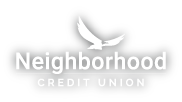Text Messaging Scam Alert
Updated April 20, 2022
Updated April 27, 2021
Published September 25, 2020
April 2022: Zelle® partnered with Vox Media to develop an education campaign geared towards reducing the potential of fraud and scams. Learn about the Science Behind Scams here.
April 2021: Help outsmart fraudsters. When it comes to your money, don’t share personal info or one-time passcodes on calls, texts or in reply to emails appearing to come from Neighborhood CU.
Protect yourself and call us directly instead at 214-748-9393. At Neighborhood CU, we’ll NEVER call you and ask you to share a passcode, account number, SSN or other information over the phone. If someone asks you for any of these details and says they are from Neighborhood CU, it should raise a red flag. Hang up and call us directly
October 2020: Our main priority is members' safety, and Neighborhood Credit Union will never initiate communication and then ask for your personal information via phone, text, or email. If you receive a phone call, text, or email from us that seems suspicious, please do not hesitate to alert us by calling 214-748-9393.
Recently, there have been several fraud losses reported across the country. The losses have ranged from $30,000 up to $2 million. Neighborhood Credit Union launched Zelle earlier this month and wants to make sure members are aware of specific scams and general fraud practices so they can better protect themselves.
How does the scam work?
Fraudsters will target a member and send account alerts via text message or by directly calling. The text appears to be coming from financial institution, commonly known as "Spoofing", and warns them of suspicious debit card transactions on their accounts. If the member responds to the text, the fraudsters call the members spoofing their financial institution's phone number claiming they are in the fraud department and are calling to verify suspicious transactions on the member’s account. Then the fraudster will use a variety of methods to gain access to an account:
- The fraudster will tell members over the phone that they will send a passcode via text message, and the members must provide the passcode over the phone. The fraudsters then attempt a transaction that triggers a 2-step verification passcode, such as using the “forgot password” feature or initiating a person-to-person payment transaction, and the passcode is sent to the members via text or email who, in turn, provide it to the fraudsters.
- The fraudsters may ask the member to download the AnyDesk or TeamViewer QuickSupport app. From there, the fraudster has access to the member's computer and accounts. Once access is gained, the fraudsters will transfer money out of the member's account.
Once the fraudsters have access to a member's account, they will "instant transfer" as much money as they can.
Do Not Download QuickSupport or AnyDesk
A fraudster posing from companies like Apple or your financial institutions may ask for you to download the AnyDesk or TeamViewer QuickSupport app software in efforts to gain control of your computer and bank accounts. Once access is gained, the fraudsters will transfer money out of the member's account. Never download the AnyDesk or QuickSupport app per the instructions of a person on the phone.
Neighborhood Credit Union will never ask you to perform any of the above actions, or initiate communication and then ask for your personal information via phone, text, or email.
What is an Impostor Scam?
Members who find themselves in these situations have become a victim of an impostor scam. Impostor scams are when someone commits fraud posing as a reputable business, organization, or government entity. Because the fraudsters are impersonating what seems to be a legitimate organization, it can become difficult to tell them apart from the actual organization. As a reminder, Neighborhood Credit Union will never initiate communication and ask you for personal account information via phone, text, or email. If you receive a call, text, or email from us that seems suspicious, immediately report the incident by calling us at 214-748-9393.
How to Protect Yourself
- Never provide personal information or verification codes to anyone who calls, texts, or emails you out of the blue.
- Separately dial your financial institution rather than redialing the number that called you.
- Never download the AnyDesk or QuickSupport app per the instructions of a person on the phone.
REMEMBER: Neighborhood Credit Union will never ask you to perform any of the above actions, or initiate communication and then ask for your personal information via phone, text, or email.

Catch Up on More News
Explore News & Events for more updates on what's happening in your community and at the credit union.
Who We Are
As an active part of the community for 93 years, Neighborhood Credit Union is a not-for-profit financial organization serving the state of Texas with branch locations in Collin, Dallas, Denton, Ellis, and Tarrant counties. With assets topping $1 billion, Neighborhood Credit Union has a continuously growing membership of over 60,000. For more information, call (214) 748-9393 or visit our homepage.

